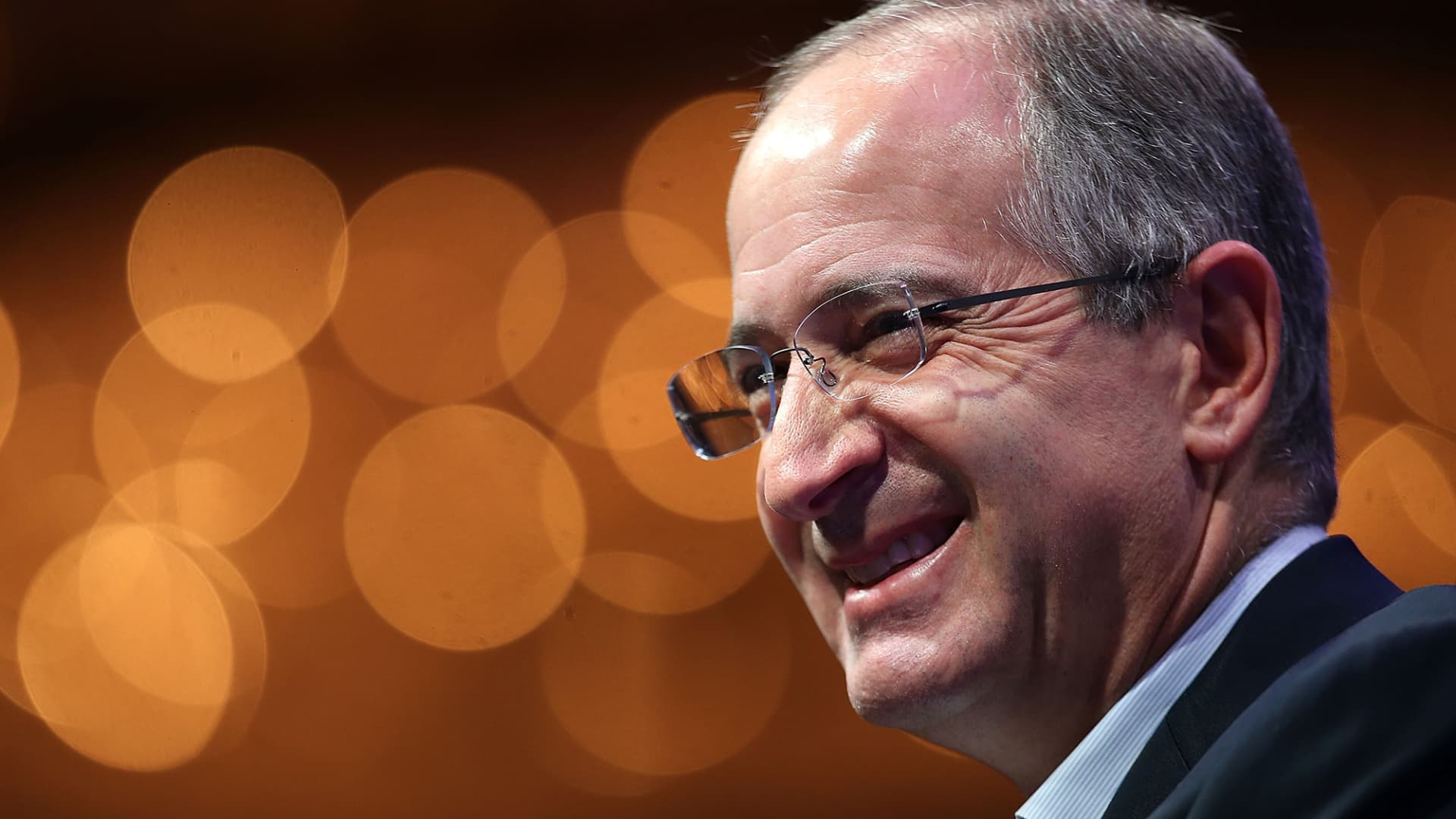Comcast topped both revenue and profit estimates in the fourth quarter as it lost fewer broadband subscribers than expected, and it raised its dividend 7%, the company said Thursday.
Here’s how Comcast performed, compared with estimates from analysts surveyed by LSEG, formerly known as Refinitiv.
- Earnings per share: 84 cents adjusted vs. 79 cents expected
- Revenue: $31.25 billion vs. $30.51 billion expected
For the quarter ended Dec. 31, net income rose 7.8% to $3.26 billion, or 81 cents a share, compared with $3.02 billion, or 70 cents a share, a year earlier. Revenue increased 2.3% compared with the prior-year period. Adjusted earnings before interest, taxes, depreciation and amortization (EBITDA) was flat year over year at about $8 billion.
“For the third consecutive year, we generated the highest revenue, adjusted EBITDA and adjusted EPS in our company’s history,” Comcast Chief Executive Officer Brian Roberts said in a statement. “We also reported the highest adjusted EBITDA on record at Theme Parks; were the #1 studio in worldwide box office for the first time since 2015; and maintained Peacock’s position as the fastest growing streamer in the U.S.”
Comcast increased its dividend by 8 cents, or 7%, to $1.24 per share on an annualized basis for 2024. It’s the 16th consecutive year the company has raised its dividend. Comcast also approved a new share repurchase program authorization with no expiration date for $15 billion, effective as of Friday.
Free cash flow in the fourth quarter was $1.7 billion and $13 billion for the year.
Comcast lost 34,000 domestic broadband subscribers — less than the average analyst estimate of about 62,000 as compiled by StreetAccount. Despite the losses, domestic broadband revenue rose 3.7% to $6.4 billion. Average revenue per user jumped 3.9% as customers connected more devices and spent more for higher Internet speeds.
Comcast added 310,000 wireless subscribers, trailing the average analyst forecast of about 342,000 gained. The company lost 389,000 video subscribers — a narrower loss than the average analyst estimate of nearly 458,000.
Theme parks adjusted EBITDA rose 11.6% to $872 million, which trailed analyst estimates of roughly $897 million. The figure still broke a quarterly record for Comcast.
NBCUniversal results
NBCUniversal’s flagship streaming service, Peacock, added 3 million subscribers as revenue increased 51% to $1.03 billion, marking the first time Peacock has topped $1 billion or more in a quarter. Peacock lost an adjusted $825 million in the quarter, narrowing its loss from $978 million in the same period a year prior. Peacock ended the quarter with 31 million subscribers.
Overall media revenue rose 3.1% to nearly $7 billion, but adjusted EBITDA fell 50% to $108 million due to increased sports programming costs and higher programming costs at Peacock. The increase in sports costs reflected higher media rights for NFL programming, the Premier League and the Big 10.
Domestic advertising revenue decreased 6.9% year over year to $2.64 billion, although sales would have increased 2.7% in the quarter with the exclusion of last year’s World Cup advertising.
Theatrical revenue rose 59% in the quarter based largely on the performance of four films: “Five Nights at Freddy’s,” “Trolls Band Together,” “The Exorcist: Believer” and “Migration.” Universal ranked first in global box office in 2023 for the first time since 2015 and produced three of the top five movies: “The Super Mario Bros. Movie,” “Oppenheimer” and “Fast X.”
Disclosure: Comcast owns NBCUniversal, the parent company of CNBC.
